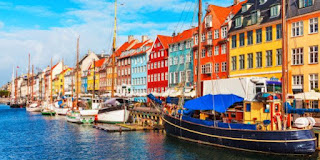As restrictions on various activities are eased this month, it will be very important for all of us to adhere to measures recommended to mitigate contagion: wearing masks, social distancing, and meticulous attention to personal hygienic practices such as hand washing.
It is being emphasized that these are necessary to prevent a steep rise in COVID-19 cases - and, ultimately, deaths.
It may be instructive to look a bit further at the practical consequences of doing - versus not doing - what is recommended. Let us call the recommendations - masks, social distancing, hygienic measures - the "triad."
Scrupulously implementing the triad - or failure to do so - has predictable results.
Of those who get infected with the virus, some will have minimal or no symptoms - referred to as "subclinical" infection. Many others, however, will feel ill enough to experience definite effects on their ability to engage in all their usual activities. Some will get sick enough to be hospitalized, and some of those will require intensive care.
Some who get infected will transmit the infection to others, for a "multiplier" effect.
Here are some things that will happen as a direct consequence of not adhering to the triad:
1. You will be more likely to get sick enough to miss work. This affects workplace productivity. It may place an additional burden on co-workers who must pick up the slack. It is harmful to the employer's bottom line - which is likely, ultimately, to be bad for you and your co-workers.
2. You will be more likely to get sick enough to require hospitalization, thereby consuming healthcare resources that could otherwise have been devoted to caring for others and driving up society's overall healthcare costs.
3. You will be more likely to become critically ill, thus requiring intensive care - the most costly utilization of healthcare resources.
4. You will be more likely to transmit the infection to others, thereby multiplying the effects enumerated as 1, 2, and 3 above.
5. Among those you may infect will be healthcare workers, despite their best efforts to keep from catching it from their patients. This may cause them to miss work, placing additional burdens related to cost and productivity on the healthcare system. (Sickness among employees is costly for hospitals, which must pay premium wages to those working overtime to cover.) It also increases the risk that healthcare workers will then transmit the infection to others, including their co-workers and their families - and other patients who are in the hospital for unrelated reasons.





